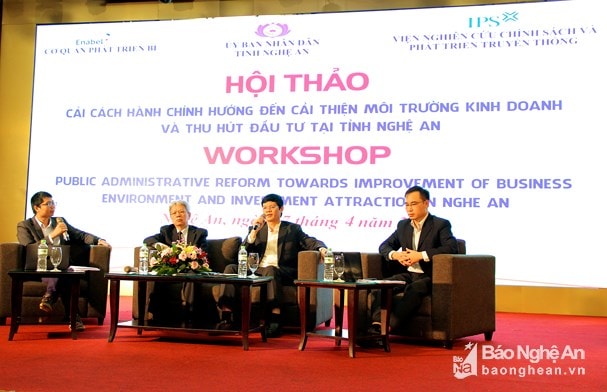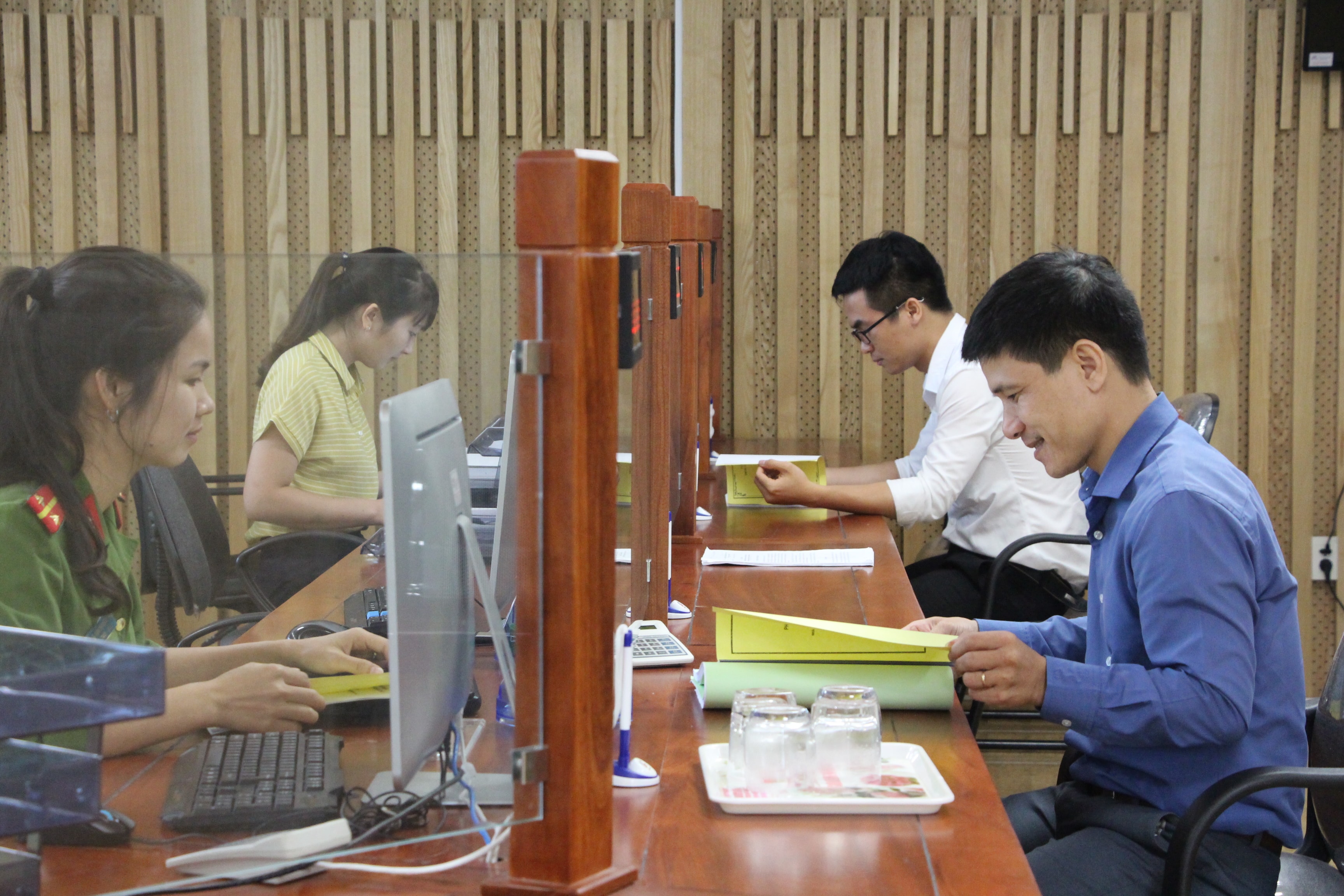Administrative reform: When will the mechanism of asking for opinions at all levels and sectors end?
(Baonghean.vn) - At the Administrative Reform Workshop aimed at improving the business environment and attracting investment in Nghe An province held on the morning of April 17 with the participation of the Embassy of the Kingdom of Belgium, representatives of the RALG Project, and businesses, an issue was raised and hotly discussed, which was the mechanism for asking for opinions at all levels and sectors when there are issues that need to be resolved.
Normally, at local government levels (provinces, centrally-run cities), when there is an issue that needs to be decided, they seek opinions from departments, agencies, and branches. This often takes a long time because it depends on the process of sending, receiving, and responding to official documents. Only after receiving enough opinions from departments, agencies, branches... even central ministries and branches can a decision be made. This makes local administrative procedures often prolonged, greatly affecting the opportunities and time of businesses.
 |
| Guests discussed with leaders of Nghe An province. Photo: My Nga |
Raising this issue, Dr. Nguyen Si Dung - former Deputy Head of the National Assembly Office said: The mechanism of asking for opinions of the "whole village" has cases where the majority of departments and branches have agreed, but only one department disagrees, then the enterprise has to run back and forth to that department, causing trouble and double losses for the enterprise. According to Mr. Dung, the mechanism of "whole village" deciding like that cannot be fast, and local leaders need to think about this issue.
Comrade Le Xuan Dai - Member of the Provincial Party Standing Committee, Permanent Vice Chairman of the Provincial People's Committee also admitted that: Not only are the departments and branches slow in responding, but asking for opinions from ministries and branches is also quite time-consuming, affecting the local administrative procedure settlement process.
 |
| One-stop administrative procedure settlement at the Investment Promotion and Support Center. Photo: Tran Chau |
Mr. Nguyen Huu Hanh - Deputy Director of the Department of Information Technology - Ministry of Information and Communications also said: "In addition to the very slow response of departments and branches, our current paper document system is very slow, it takes at least 2 days for documents from one unit to be sent to another. While I see that we can process them via email very quickly. If the leaders of the units have a good understanding of information technology applications, they can process them quickly and then transfer them immediately to specialists. Therefore, good application of information technology is very valuable and helps to effectively reform administration. Application of information technology also helps to reduce meetings, save time and costs".
From the discussion content, Mr. Nguyen Huu Hanh also recommended that localities need to have a process, and unify that process because currently many places have a process but the process is not standard, or only implemented in form. Once there is a process and procedure, we must pay attention to the factors for operation. In which, people are a very important factor. There also needs to be a suitable treatment regime for them to operate well; and for people and businesses using the system, they need to have access to the processes and procedures in a convenient and easy way.
Additional information provided by Mr. Nguyen Huu Hanh is that the Ministry of Information and Communications is currently building a provincial e-government model, a district e-government model, and when successful, it will be a model for localities to learn from.
Regarding this issue, Mr. Le Xuan Dai - Permanent Vice Chairman of the Provincial People's Committee said that administrative procedures in Nghe An are now clearly public. However, there is still a situation of going back and forth many times to supplement documents and procedures, causing inconvenience for people and businesses; secondly, the delay in returning results wastes time for businesses. Nghe An is rectifying this situation, first of all in the field of personnel work and holding leaders accountable./.



.jpg)




